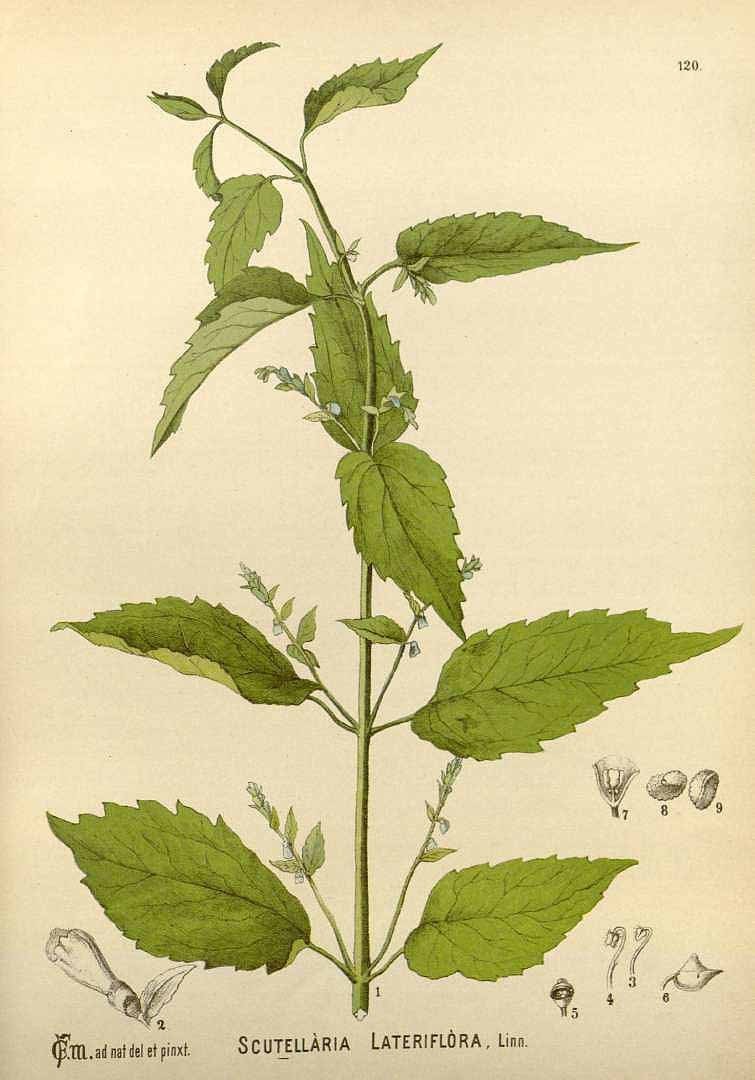Meet the plants: skullcap
If there is no struggle, there is no progress.
Frederick Douglass
Scutellaria lateriflora
Scutellaria lateriflora, commonly known as skullcap, derives its name from the Latin 'scutella,' meaning 'little shield,' describing the shape of its calyx. In the 1700s, it was categorized under the genus Cassida, which means 'helmet,' reflecting its historical use. Known for its gentle relaxing effects, skullcap gained popularity as a treatment for hydrophobia associated with rabies, earning it the nickname 'mad-dog weed.' This anxiety-relieving herb belongs to the mint family and has a notably bitter taste. Its dried leaves and stems are used in herbal medicine and teas to alleviate anxiety, stress, and insomnia. Although rare, overuse can lead to hepatotoxicity (liver failure), which typically resolves upon cessation of use. Skullcap acts as an effective sedative, antispasmodic, and nervine tonic.
Skullcap's sedative properties affect the central nervous system, aiding in calming acute trauma and promoting restorative sleep.
A rare sighting— an aloe flower (bottom left) at Solitary Gardens!
We offer these contemplative questions for your personal reflection, and as talking points to have transformative conversations. As you nuture your plant, nurture these ideas. Let’s grow together!
Skullcap has a sedative power and affects the central nervous system. It is said to help us calm in acute trauma moments and to help us rest so we can restore. Consider how many more solutions emerge when we approach challenges without being in a state of trauma.
Where in your life and world can you see conflicts baited by otherness? In what ways does the so-called justice system participate in baiting and creating conflict between so-called other?
How does conflict affect your nervous system? How can we create systems that address conflict without triggering our central nervous system?
How many more solutions become available when we are not in a trauma response?
